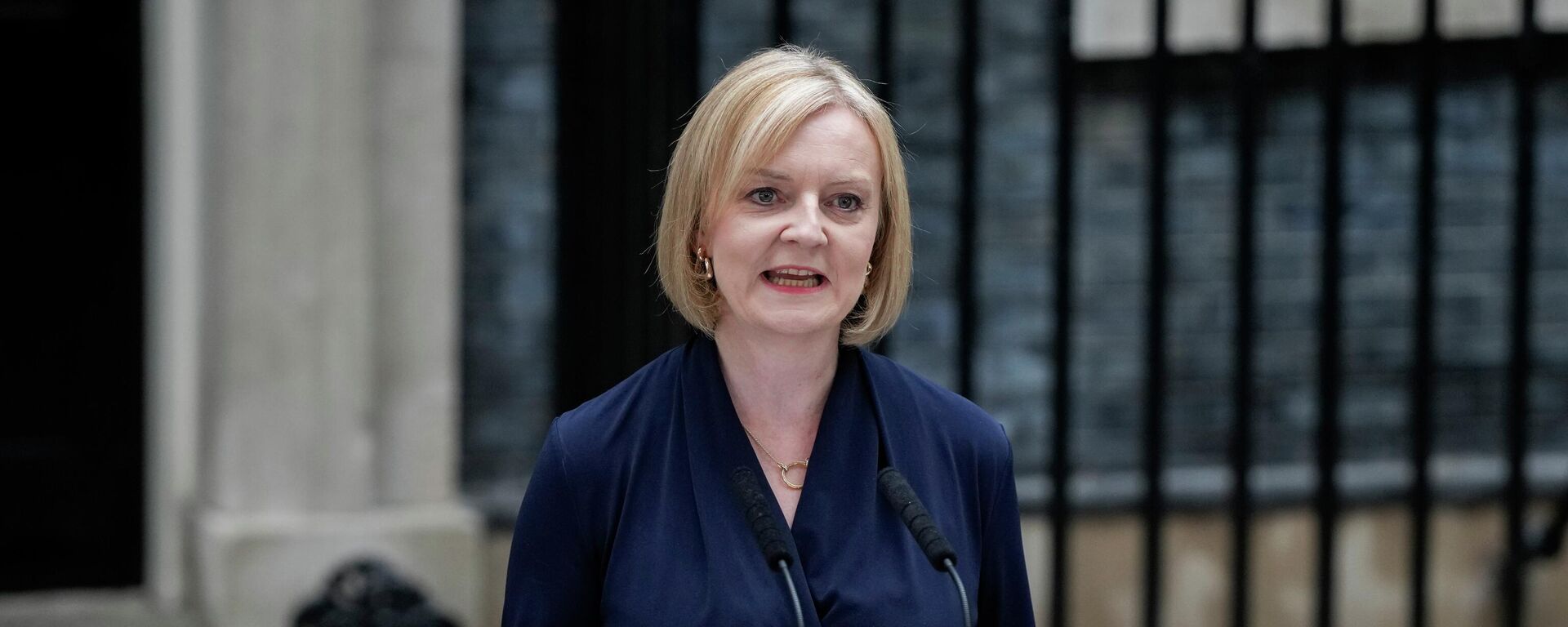https://sputnikglobe.com/20221010/uk-risks-significant-brain-drain-as-scientists-leave-amid-fear-of-losing-access-to-eu-funding-pot-1101671760.html
UK 'Risks Significant Brain Drain’ as Scientists Leave For Fear of Losing Access to EU Funding Pot
UK 'Risks Significant Brain Drain’ as Scientists Leave For Fear of Losing Access to EU Funding Pot
Sputnik International
In the midst of continuing Brexit-related disagreements between London and Brussels, such as the issue of the Northern Ireland Protocol, the UK’s negotiations... 10.10.2022, Sputnik International
2022-10-10T08:52+0000
2022-10-10T08:52+0000
2023-05-28T15:21+0000
world
research
scientists
post-brexit
european union (eu)
united kingdom (uk)
https://cdn1.img.sputnikglobe.com/img/07e6/0a/0a/1101670225_0:160:3073:1888_1920x0_80_0_0_9d0f391639cddde86add504ed0465235.jpg
UK is facing a looming risk of a “significant brain drain”, Sky News reported.Scientists and engineers are increasingly relocating from Britain to avoid losing EU research funding as post-Brexit woes continue to plague London’s relationship with Brussels.Since talks over the future of Research and Development (R&D) support by the EU have stalled, a total of 22 UK-based scientists have reportedly opted to leave Britain rather than lose their research funding from the continent.After six years of contentious negotiations over Brexit, the European Union and the UK government - now led by Prime Minister Liz Truss - have yet to come to an agreement on whether Britain will remain part of the continent’s flagship research program, Horizon Europe. The seven-year scheme envisages grants of nearly €100Bln ($98Bln) in research funds, but UK researchers are increasingly concerned they may lose access to this funding pot.As officials in London and Brussels remain deadlocked over post-Brexit political details, particularly such sticky issues as the Northern Ireland Protocol (NIP), uncertainty has plagued UK research.Despite Downing Street promising to match the EU funding already awarded to any researchers who have a grant, many scientists are sceptical. Moritz Treeck, a researcher originally from Germany who leads a team studying malaria at the Francis Crick Institute in London, said the opportunities offered by working in UK science were "huge". But now the situation appears to be changing.Those researchers who are reluctant to leave the UK have highlighted that the impasse over Horizon funding is affecting international collaborations.Professor Carsten Welsch, head of the physics department at the University of Liverpool, recently had to surrender part of his Horizon-funded project to a collaborator in Italy. Welsch, who runs a program developing new particle accelerators, similar to the Large Hadron Collider at CERN in Geneva, deplored the fact that UK institutions can no longer hold leadership roles in the scheme."If you don't hold the leadership role in that multimillion pound or euro project, then how likely is it that you have the same leadership role in that much, much larger international project?" he asked.Warning of the effects continuing uncertainty might have, Baroness Brown of Cambridge, Julia King, who chairs the House of Lords Science and Technology Committee was quoted as saying:This comes after more than 100 UK-based researchers - who had won funding from Horizon Europe’s European Research Council - lost their grant after they opted against relocating to Europe, a condition of the funding, Nature reported in August.“The worst thing is the prolonged uncertainty, because that’s just pouring acid on the soft tissues of collaboration that we rely on, between UK researchers and research across the rest of the EU,” James Wilsdon of the University of Sheffield, told the publication.Concerns have been fueled even further amid Truss' vast unfunded tax-cuts proposed in the Growth Plan. Some fear that these spending ideas may result in cuts to research funding to make up the EU shortfall.
https://sputnikglobe.com/20220924/truss-walks-tightrope-between-revising-northern-ireland-protocol-pleasing-us-experts-believe-1101172840.html
https://sputnikglobe.com/20221010/liz-truss-may-cave-to-rebel-mps-demands--u-turn-on-real-terms-benefits-cuts-1101664733.html
united kingdom (uk)
Sputnik International
feedback@sputniknews.com
+74956456601
MIA „Rossiya Segodnya“
2022
News
en_EN
Sputnik International
feedback@sputniknews.com
+74956456601
MIA „Rossiya Segodnya“
Sputnik International
feedback@sputniknews.com
+74956456601
MIA „Rossiya Segodnya“
research, scientists, post-brexit, european union (eu), united kingdom (uk)
research, scientists, post-brexit, european union (eu), united kingdom (uk)
UK 'Risks Significant Brain Drain’ as Scientists Leave For Fear of Losing Access to EU Funding Pot
08:52 GMT 10.10.2022 (Updated: 15:21 GMT 28.05.2023) In the midst of continuing Brexit-related disagreements between London and Brussels, such as the issue of the Northern Ireland Protocol, the UK’s negotiations over a deal to remain in the EU's £84Bln Horizon Europe funding program have stalled.
UK is facing a looming risk of a “significant brain drain”, Sky News reported.
Scientists and engineers are increasingly relocating from Britain to avoid losing EU research funding as
post-Brexit woes continue to plague London’s relationship with Brussels.
Since talks over the future of Research and Development (R&D) support by the EU have stalled, a total of 22 UK-based scientists have reportedly opted to leave Britain rather than lose their research funding from the continent.
After six years of contentious negotiations over Brexit, the European Union and the UK government - now led by Prime Minister Liz Truss - have yet to come to an agreement on whether Britain will remain part of the continent’s flagship research program, Horizon Europe. The seven-year scheme envisages grants of nearly €100Bln ($98Bln) in research funds, but UK researchers are increasingly concerned they may lose access to this funding pot.
As officials in London and Brussels remain deadlocked over post-Brexit political details, particularly such sticky issues as the
Northern Ireland Protocol (NIP), uncertainty has plagued UK research.

24 September 2022, 12:36 GMT
Despite Downing Street promising to match the EU funding already awarded to any researchers who have a grant, many scientists are sceptical. Moritz Treeck, a researcher originally from Germany who leads a team studying malaria at the Francis Crick Institute in London, said the opportunities offered by working in UK science were "huge". But now the situation appears to be changing.
"Saying you want to build an economy and you want to be an international superpower and then facing inwards... I feel that it's a step back, not a step forward," he was cited as saying.
Those researchers who are reluctant to leave the UK have highlighted that the impasse over Horizon funding is affecting international collaborations.
Professor Carsten Welsch, head of the physics department at the University of Liverpool, recently had to surrender part of his Horizon-funded project to a collaborator in Italy. Welsch, who runs a program developing new particle accelerators, similar to the Large Hadron Collider at CERN in Geneva, deplored the fact that UK institutions can no longer hold leadership roles in the scheme.
"If you don't hold the leadership role in that multimillion pound or euro project, then how likely is it that you have the same leadership role in that much, much larger international project?" he asked.
Warning of the effects continuing uncertainty might have, Baroness Brown of Cambridge, Julia King, who chairs the House of Lords Science and Technology Committee was quoted as saying:
"I think we will see a brain drain of our brightest talents going overseas. I think we will see more of our best technology-based companies finding that it's easier to get their scale-up funding overseas to list on stock markets in the US rather than in the UK. It won't be instantaneous to the UK economy, but in medium to long term it will have significant impacts."
This comes after more than 100 UK-based researchers - who had won funding from Horizon Europe’s European Research Council - lost their grant after they opted against relocating to Europe, a condition of the funding, Nature
reported in August.
“The worst thing is the prolonged uncertainty, because that’s just pouring acid on the soft tissues of collaboration that we rely on, between UK researchers and research across the rest of the EU,” James Wilsdon of the University of Sheffield, told the publication.
Concerns have been fueled even further amid Truss'
vast unfunded tax-cuts proposed in the Growth Plan. Some fear that these spending ideas may result in cuts to research funding to make up the EU shortfall.
"As they eye up low-hanging fruit for spending cuts, the £6Bln ear-marked to replace Horizon Europe certainly looks like it might be vulnerable," said Wilsdon.

10 October 2022, 06:06 GMT




